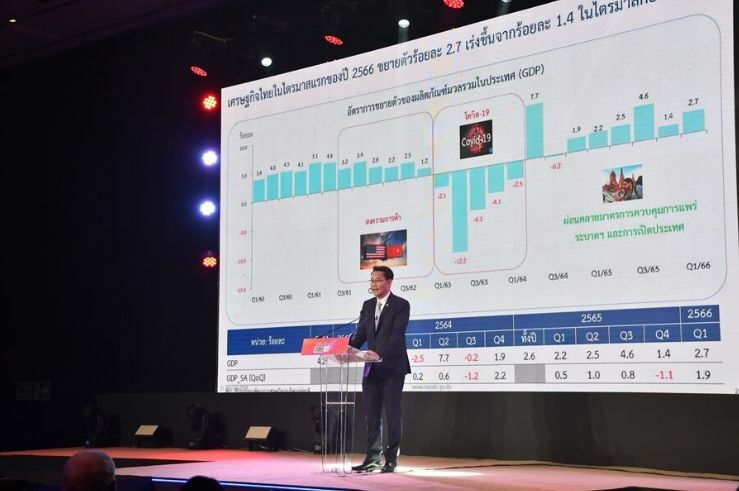Thai economy stimulus: Government plans 1.9 trillion baht boost during government transition

Thailand’s National Economic and Social Development Council (NESDC) unveiled plans to inject 1.9 trillion baht into the Thai economy to bridge the gap before the new government can budget for the year 2024, emphasising fiscal reforms and monitoring household debt.
Secretary-General Danucha Pichayanan highlighted the need for industry restructuring and government action in response to shrinking exports, which is affecting the whole region including Vietnam, Malaysia, and Indonesia. With an expected increase in foreign tourists and strong private consumption, the Thai economy is expected to remain healthy.
During the transitional phase awaiting the new government, the NESDC will focus on approving the annual budget bill for the year 2024, which should be completed by the first quarter of 2023 at the latest. Consultations with the Bureau of Budget and state enterprises have outlined around 1.05 trillion baht for public sector investment entering the system in the fourth quarter of 2022, with another 50 billion baht in the first quarter of 2023. Together, these investments would provide approximately 1.8-1.9 trillion baht to support the Thai economy.
Danucha clarified that the Thai economy in 2023 is continuously recovering, with issues such as geopolitics and the global economy as the main concerns. He added that household debt requires attention and that further on, restraining spending might be necessary. He also stressed the importance of closely monitoring non-performing loans in the automotive sector and credit card debt. With regard to welfare policies from the new government, Danucha called for targeted measures and fiscal reforms before implementing comprehensive welfare programs, reported KhaoSod.
Crit Kriangkrai Thiennukul, Chairman of the Federation of Thai Industries (FTI), said that after discussions with the Move Forward Party (MFP), the FTI shared concerns about sudden wage rises affecting small and medium-sized enterprises (SMEs). The MFP explained that an instant 35% rise to 450 baht per day would address issues in low-wage households and reduce household debt to enhance the Thai economy.
The FTI expressed that a unified view should be taken into account by the tripartite committee’s opinions, ensuring that all parties agree on mechanisms.
Additionally, the FTI proposed support for SMEs to mitigate the impact of rising labour costs, electricity prices, and interest rates that can impact the Thai economy. The organisation also called for outdated laws affecting businesses to be revised to prevent corruption, as many of these can limit business growth and encourage bribery.
Latest Thailand News
Follow The Thaiger on Google News:


























